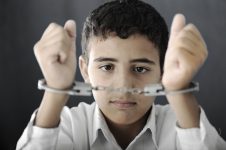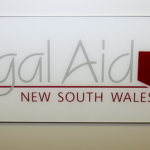What Penalties can the Children’s Court in Sydney Give?

If a person under the age of 18 is charged with a criminal offence in the Sydney area, the matter will be dealt with by the Children’s Court in Sydney.
Going to court can be an overwhelming experience for a child, and the Children’s Court has different procedures to the adult court, so it is important that whatever legal representation you choose for your child, they are experienced in dealing with Children’s Court matters.
Children can be charged with criminal offences from 10 years of age.
Harsh penalties such as imprisonment and heavy fines that are considered appropriate for adult offenders are not generally considered appropriate for minors.
If your child has been tried by the Children’s Court and found guilty of a criminal offence, they could face a number of different penalties, most given with the emphasis on rehabilitation and re-education and with the aim of reducing reoffending.
Some of the penalties your child could face for a finding of guilt for a criminal offence in the Children’s Court include a:
- Dismissal or a caution. A dismissal or a caution means there will be no further consequences of the offence for your child, and no conviction. A child is not allowed to have more than three cautions for offences, even if the charges are not of a similar nature.
- Fine. In some cases, your child may be required to pay a fine or compensation for any damage to property. The court will take your child’s financial situation into consideration when deciding an appropriate fine.
- Good behaviour bond. A good behaviour bond sets out a number of conditions that your child will be required to abide by. These generally include mandatory participation in counselling and rehabilitation programs. If your child breaks the terms of their good behaviour bond, they may be re-sentenced and given a harsher penalty.
- Probation order. This is similar to a good behaviour bond, but probation orders are generally given for offences of a more serious nature. Under a probation order, your child will generally be required to have regular contact with Juvenile Justice.
- Community service order. A community service order requires the child to carry out some form of work to help the community. Community service orders are provided subject to certain criteria, and your child will need to be assessed as a suitable candidate to perform community service work.
- Control order. A control order sentences a child to a certain period of time in a detention centre. These are generally imposed for more serious offences where no other penalty is deemed appropriate.
There are a number of different factors that the children’s court judge will take into consideration when deciding what sentence is appropriate for your child. These can include:
- The age of the child and how close to 18 they are.
- Any extenuating circumstances that may have contributed to the offence.
- The course of action that will be best for the child in terms of their individual treatment and rehabilitation.
- Whether they have pleaded guilty or accept responsibility for their offence.
If your child is facing criminal charges at the Children’s Court in Sydney, it is important that they have the best possible representation from a criminal lawyer who is experienced in the Children’s Court to help them avoid a conviction or harsh penalty that could have an adverse effect on their future.






